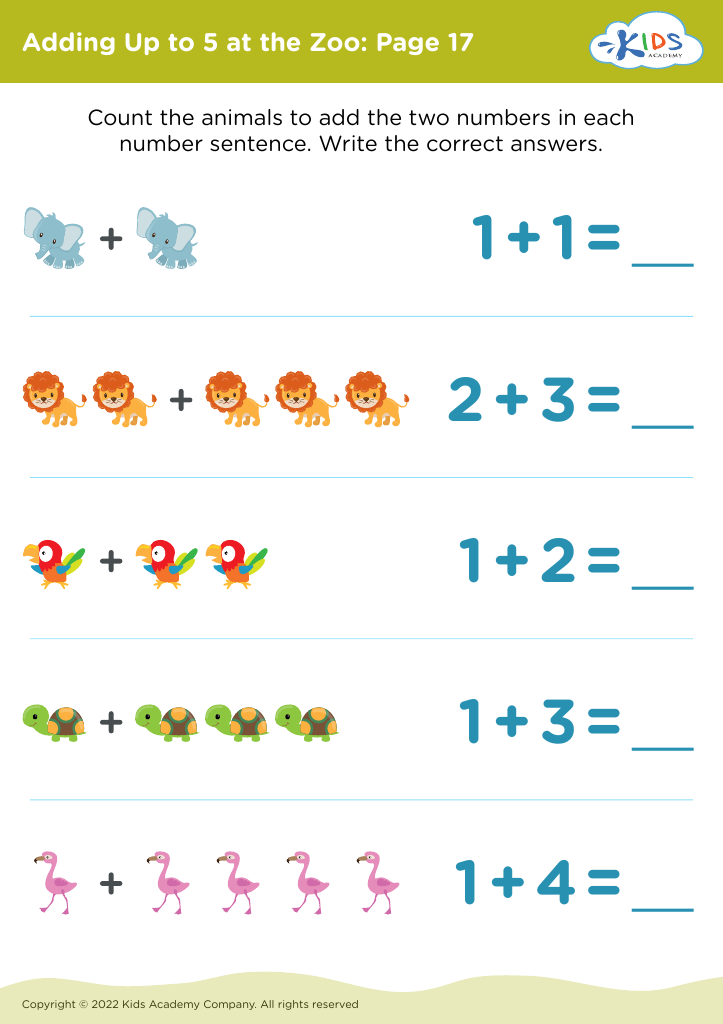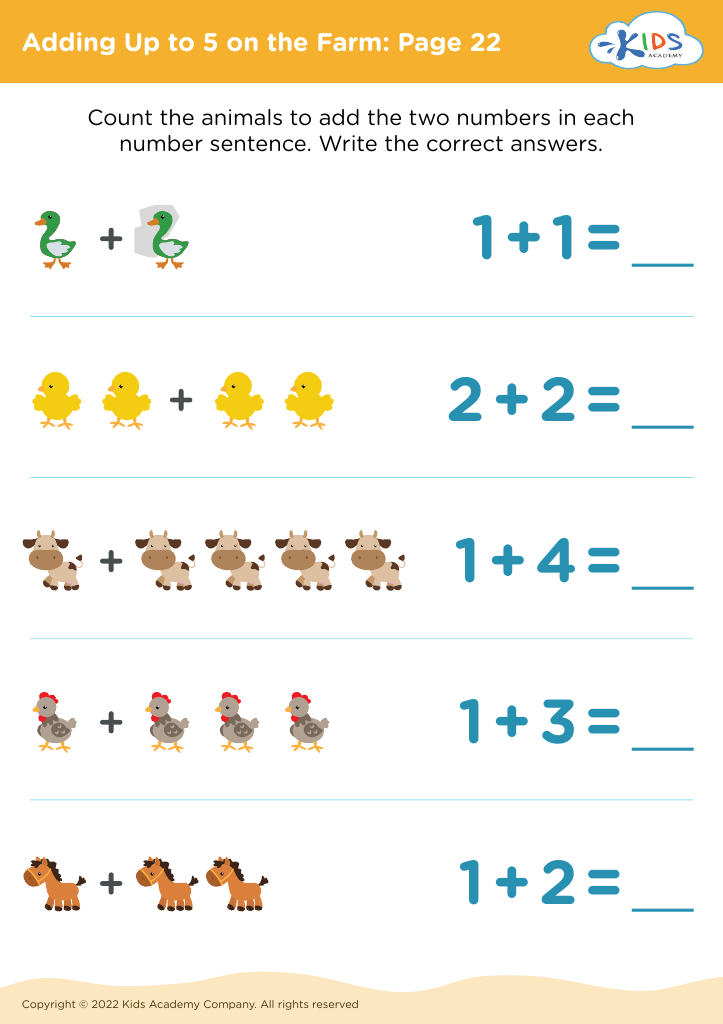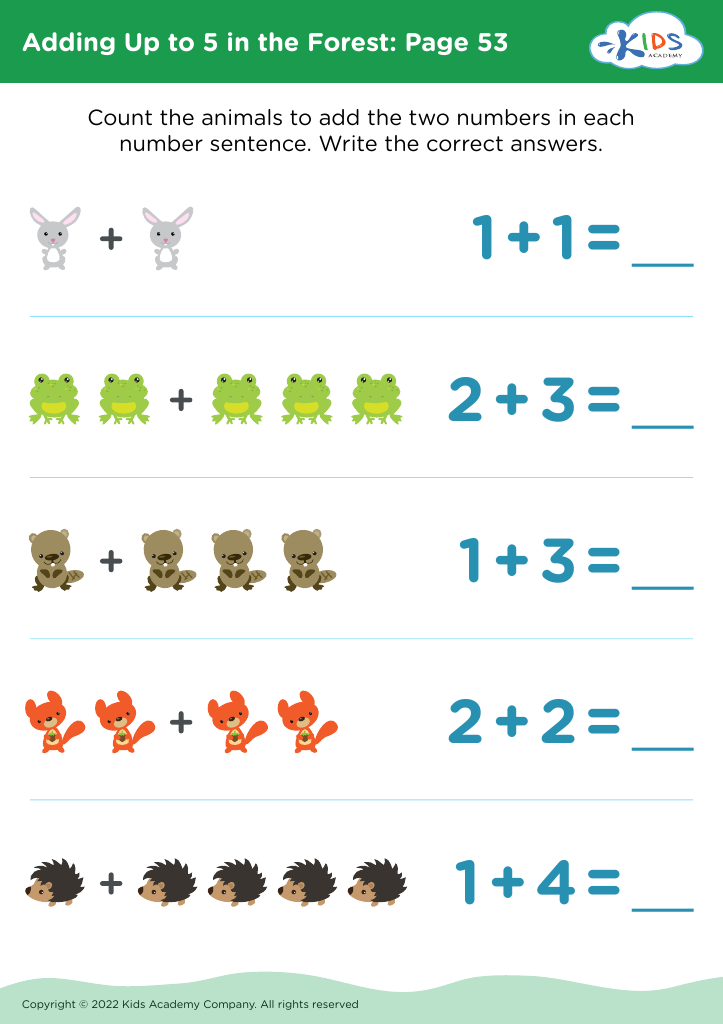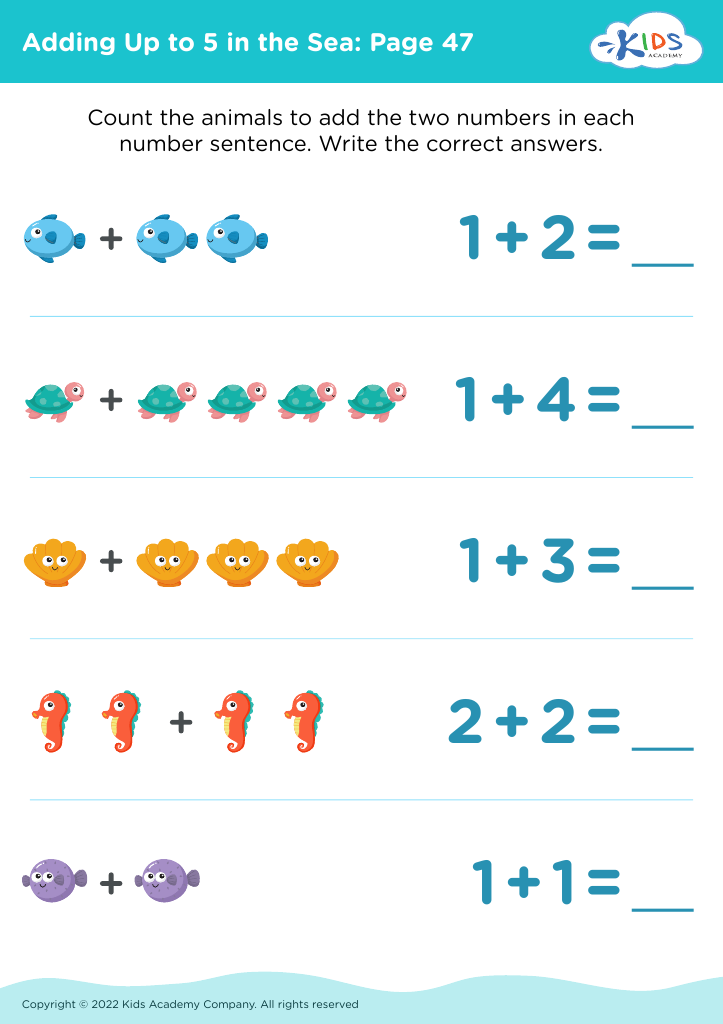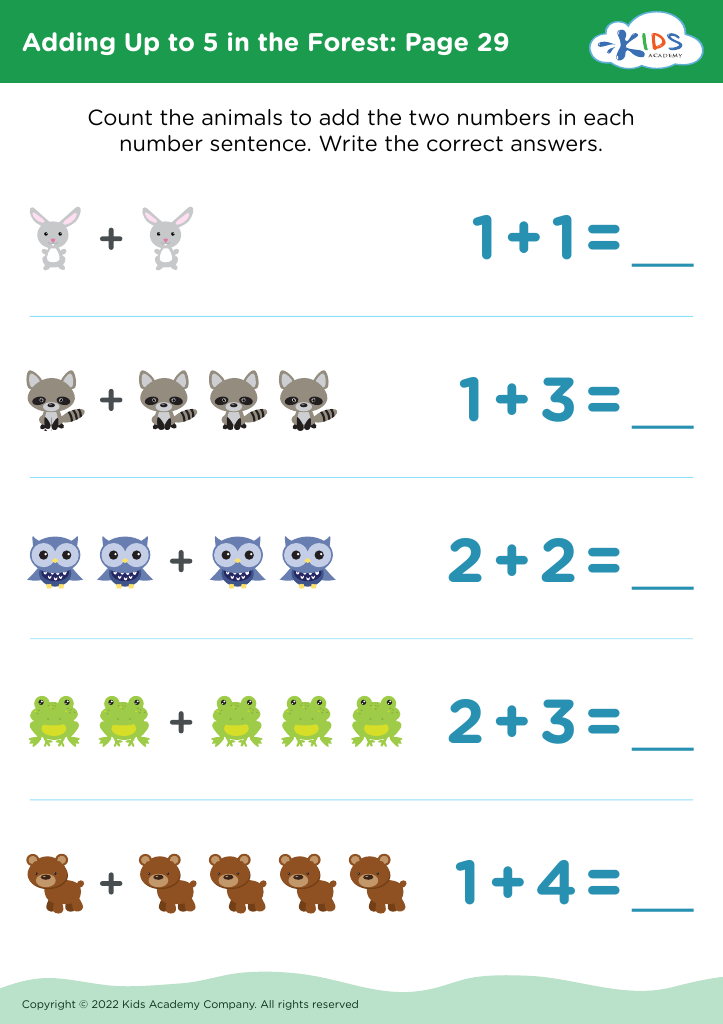Counting proficiency Addition & Subtraction Worksheets for Ages 4-5
11 filtered results
-
From - To
Explore our engaging Counting Proficiency Addition & Subtraction Worksheets designed specifically for ages 4-5! These worksheets provide a fun and interactive way for young learners to master fundamental math skills. Through colorful illustrations and age-appropriate exercises, children will enhance their counting abilities while practicing simple addition and subtraction. Each worksheet promotes critical thinking and problem-solving, ensuring kids build a strong foundation for future math success. Our thoughtfully crafted activities not only make learning enjoyable but also encourage early numeracy skills essential for academic achievement. Start your child's math journey today with our comprehensive collection of counting proficiency worksheets!
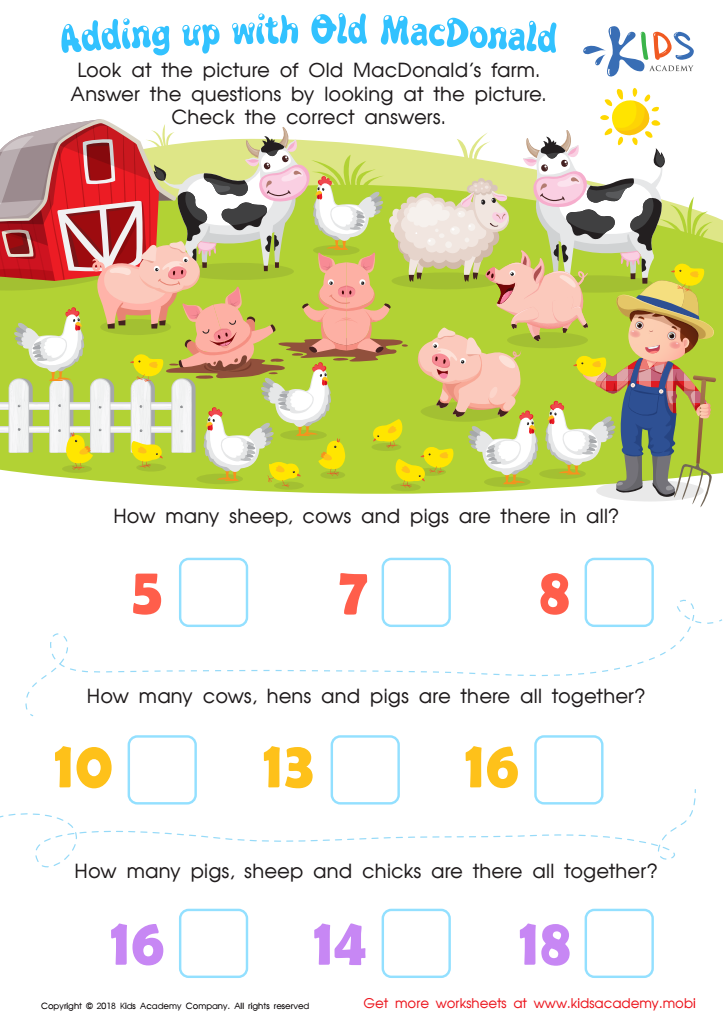

Adding Up with Old MacDonald Worksheet
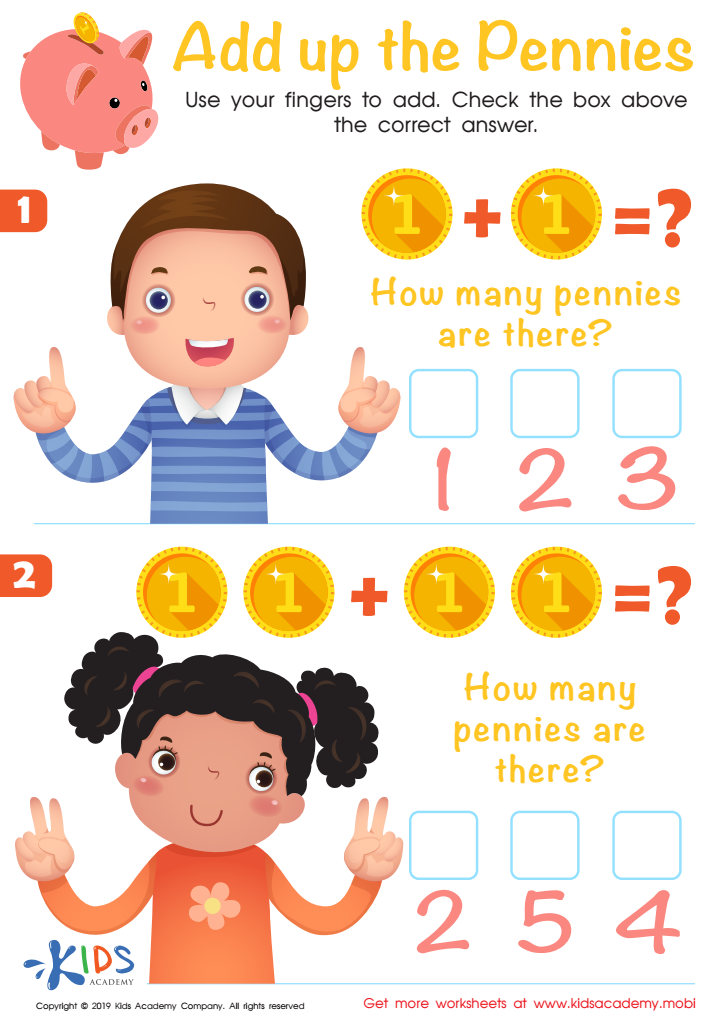

Add up the Pennies Worksheet
Counting proficiency in addition and subtraction for children aged 4-5 is crucial as it lays the foundational skills for more advanced mathematics and critical thinking. At this developmental stage, children are naturally curious and eager to explore numbers, making it an ideal time to introduce basic math concepts. Mastering counting helps children develop number sense, enabling them to understand how quantities work and how they relate to one another.
Moreover, proficiency in addition and subtraction fosters problem-solving skills. Young learners begin to visualize mathematical operations and apply them in everyday situations, from sharing toys to counting snacks. This not only enhances cognitive skills but also promotes a positive attitude towards math, reducing anxiety around the subject as they grow.
Additionally, early math skills are closely linked to later academic success. Studies have shown that children who develop a good grasp of basic arithmetic early on tend to excel in more complex math tasks in later grades. Parents and teachers should care about these skills as they directly contribute to a child's confidence and capabilities, preparing them for lifelong learning. Thus, investing time in building counting proficiency is essential for nurturing both mathematical abilities and a love for learning.
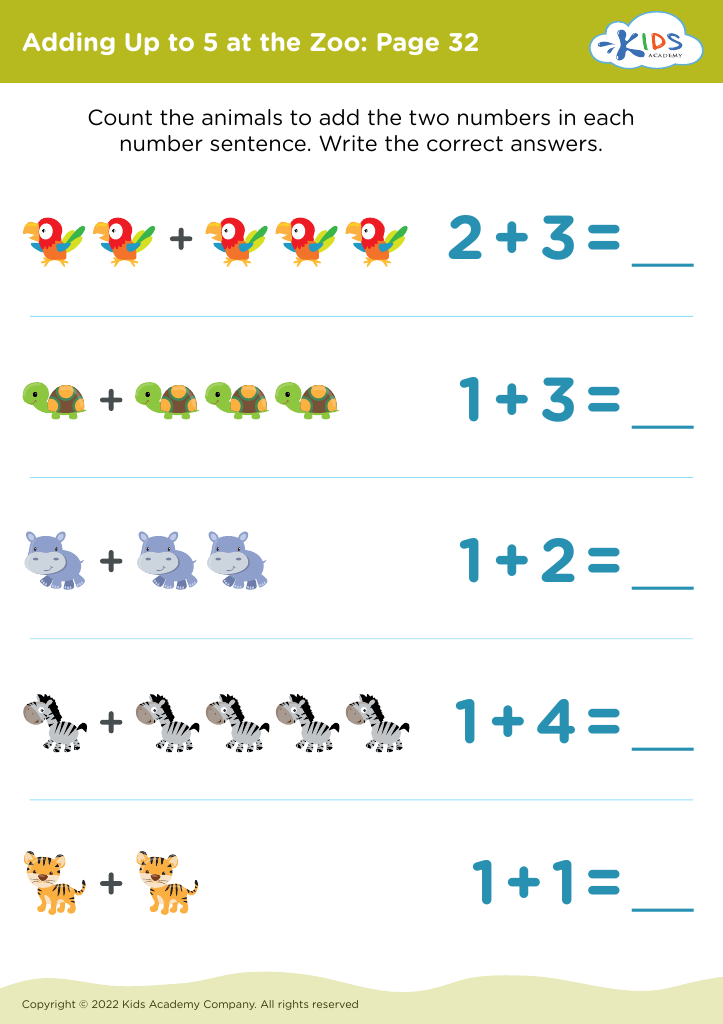

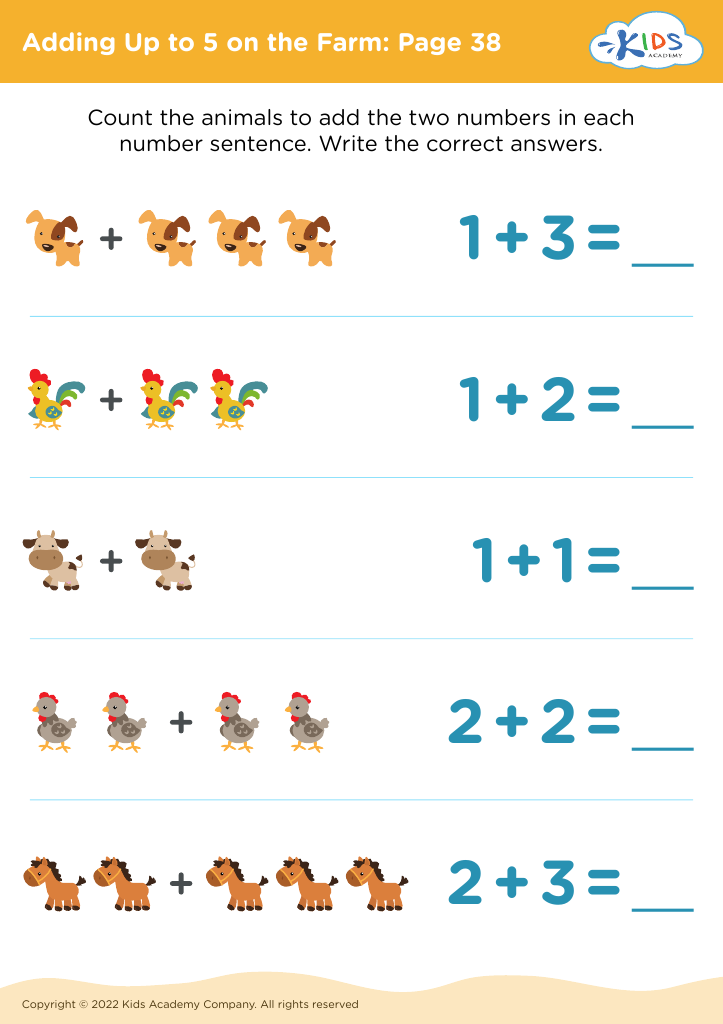
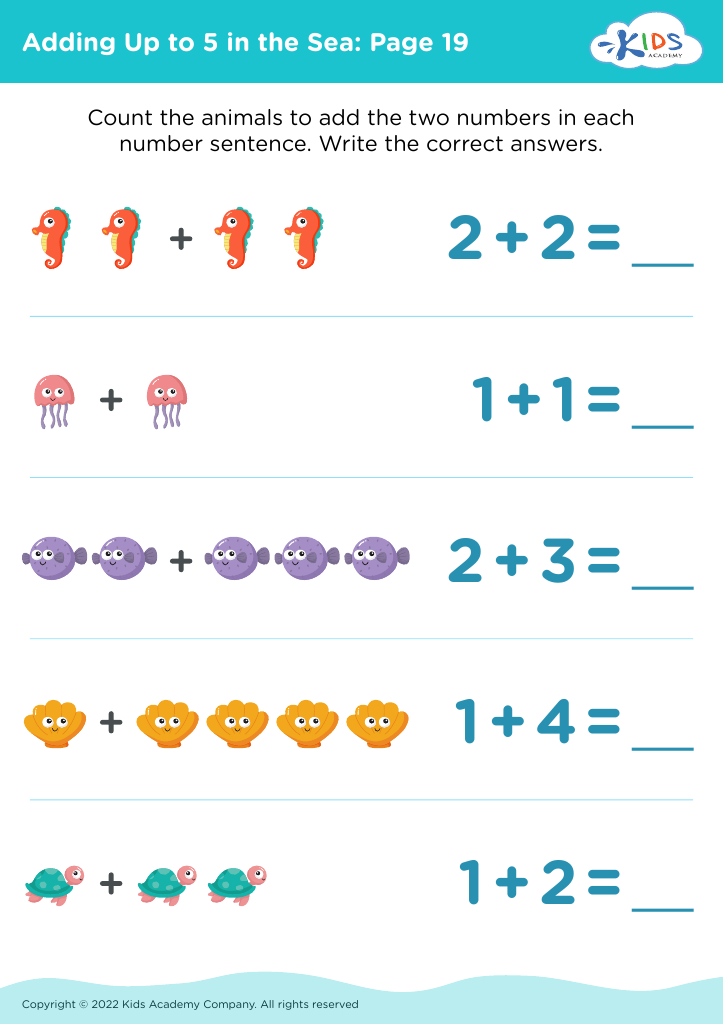
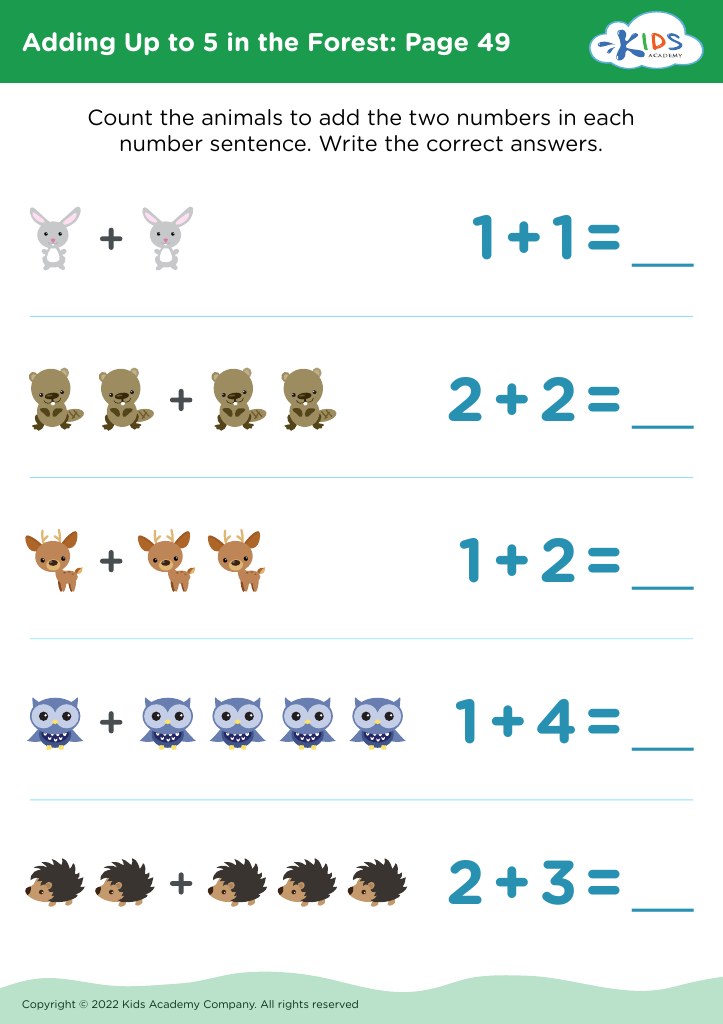
 Assign to My Students
Assign to My Students

